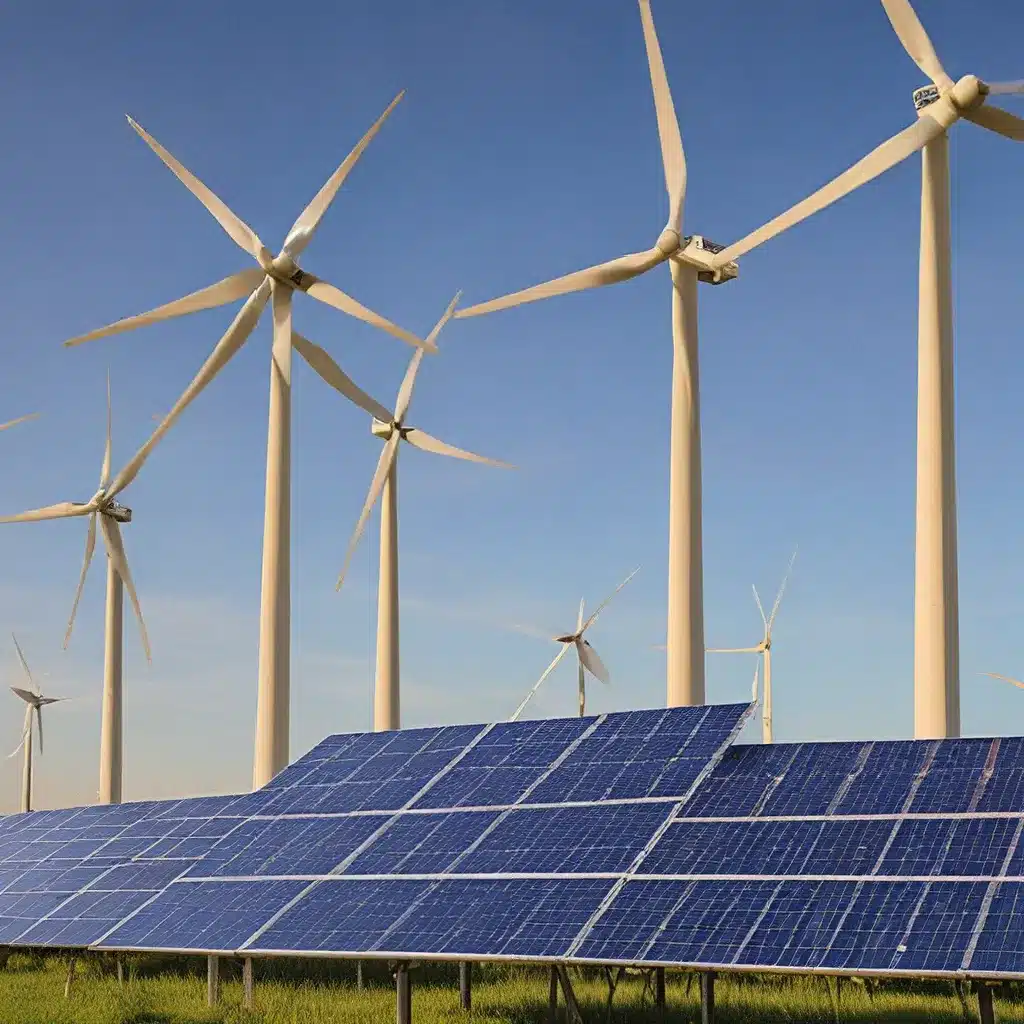
Empowering Communities through Renewable Energy Cooperatives
As a passionate advocate for sustainable energy solutions, I’ve been closely following the rise of renewable energy cooperatives. These innovative models are empowering communities to take control of their energy future, and I’m excited to share my insights with you.
Renewable energy cooperatives are community-owned and -operated organizations that generate and distribute clean power. Unlike traditional utility companies, these cooperatives are democratically governed, with each member having an equal say in decision-making. This collaborative approach allows communities to tailor their energy solutions to their unique needs and preferences.
One of the key advantages of renewable energy cooperatives is their ability to navigate the complex legal landscape surrounding energy production and distribution. Navigating the intricate web of regulations and policies can be a daunting task for individual homeowners or small businesses, but cooperatives have the resources and expertise to overcome these hurdles.
Unlocking the Potential of Renewable Energy Cooperatives
Let’s dive into the legal frameworks that enable renewable energy cooperatives to thrive:
Cooperative Structures and Governance
At the heart of a renewable energy cooperative is its cooperative structure and governance model. These organizations are typically structured as non-profit or member-owned entities, where each member has an equal vote in the decision-making process. This democratic approach ensures that the cooperative’s actions are aligned with the community’s best interests.
The German Federal Ministry for Economic Affairs and Climate Action has been at the forefront of promoting renewable energy cooperatives, providing a robust legal framework and financial incentives to support their growth. By establishing clear guidelines for cooperative governance and revenue-sharing models, the ministry has empowered communities to take control of their energy future.
Regulatory Frameworks and Policy Incentives
Navigating the complex web of energy regulations is a critical challenge for renewable energy cooperatives. Fortunately, many jurisdictions have implemented policies and incentives to support these community-driven initiatives.
Rocky Mountain Institute’s research has highlighted how various policy mechanisms, such as feed-in tariffs, net metering, and renewable energy credits, can create favorable conditions for renewable energy cooperatives to thrive. By aligning these regulatory frameworks with the cooperative model, policymakers can unleash the full potential of community-based clean energy solutions.
Legal Structures and Financing Mechanisms
Establishing the right legal structure is crucial for the long-term success of a renewable energy cooperative. Cooperatives can take on various legal forms, each with its own advantages and considerations.
Academic research has explored the merits of different cooperative structures, including non-profit organizations, limited liability companies, and hybrid models that combine elements of both. The choice of legal structure can have significant implications for the cooperative’s tax status, access to financing, and overall governance.
Securing adequate financing is another critical aspect of establishing a successful renewable energy cooperative. Creative financing mechanisms, such as community bonds, crowdfunding, and partnerships with local banks or government agencies, can help cooperatives overcome the initial capital hurdles.
Navigating the Complexity: Lessons from the Field
As I’ve delved deeper into the world of renewable energy cooperatives, I’ve been inspired by the diverse range of initiatives taking shape across the globe. Every community has its unique challenges and opportunities, and the most successful cooperatives are those that can adapt and innovate to meet the specific needs of their local context.
One inspiring example is the Brixton Energy Cooperative in London, UK. This community-owned initiative has installed solar panels on local buildings, generating clean energy and reinvesting the profits back into the community. By engaging residents in the decision-making process and providing educational resources, Brixton Energy has fostered a sense of ownership and empowerment among its members.
Another shining example is the Feldheim Renewable Energy Village in Germany, where the community has banded together to become 100% self-sufficient in renewable energy. Through a combination of wind turbines, biogas plants, and solar installations, Feldheim has not only achieved energy independence but also created local jobs and economic opportunities.
As I reflect on these success stories, I’m reminded that the path to a sustainable energy future is not a one-size-fits-all approach. Renewable energy cooperatives must be nimble, innovative, and adaptable to thrive in the ever-evolving legal and regulatory landscape.
The Future of Renewable Energy Cooperatives
Looking ahead, I’m excited about the vast potential of renewable energy cooperatives to transform our energy landscape. As more communities embrace this collaborative model, I foresee a future where clean, affordable, and community-owned energy becomes the norm, rather than the exception.
Of course, there are still challenges and complexities to navigate. Policymakers must continue to refine regulatory frameworks, financial incentives, and legal structures to create a more enabling environment for renewable energy cooperatives. And cooperatives themselves must stay ahead of the curve, exploring innovative technologies, business models, and community engagement strategies.
But I’m optimistic that with the right support and a shared commitment to sustainable energy solutions, renewable energy cooperatives can empower communities, drive the clean energy transition, and inspire a more just and equitable energy future.
If you’re interested in exploring how a renewable energy cooperative could benefit your community, I encourage you to reach out and learn more. Together, we can unlock the transformative power of community-driven clean energy.

